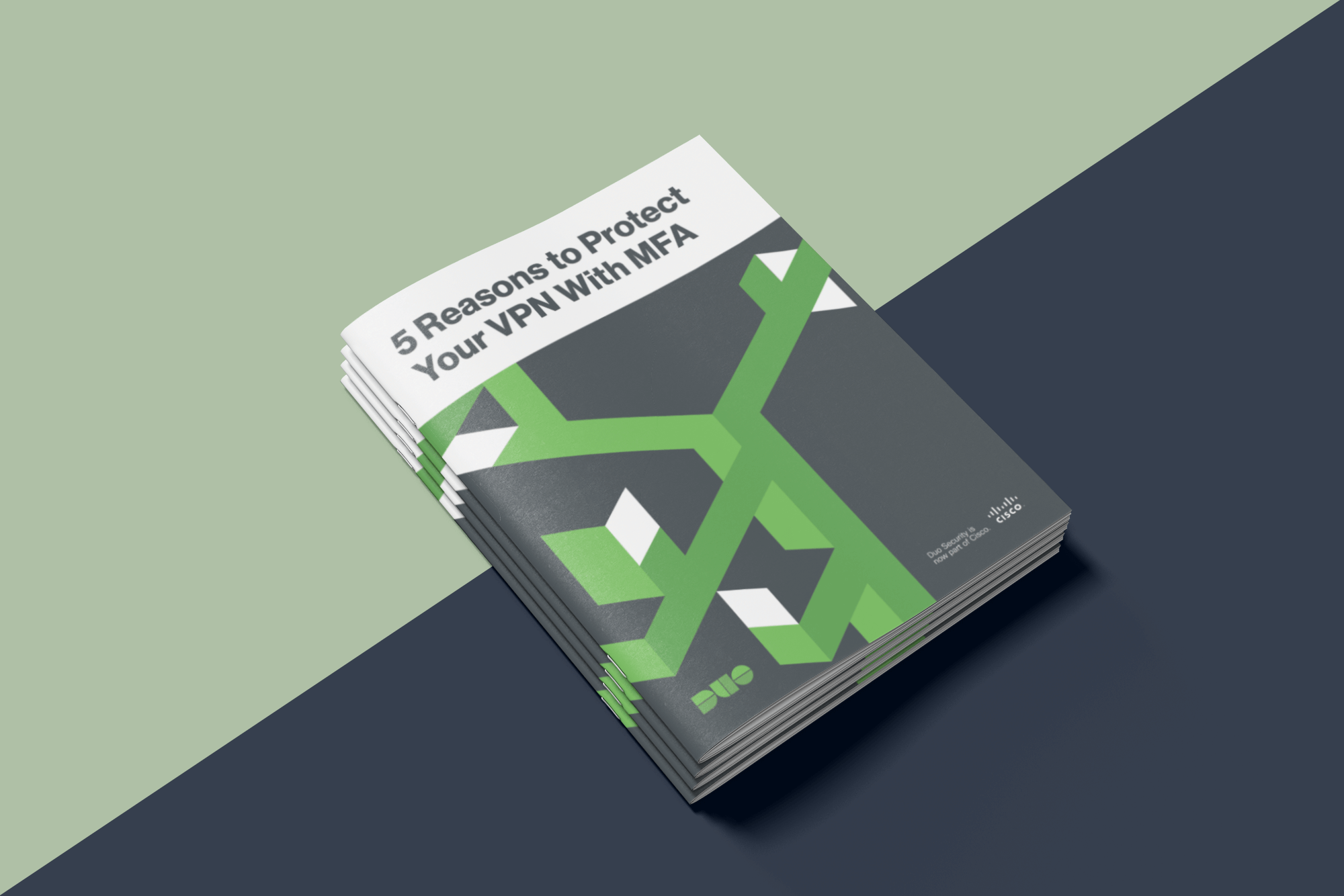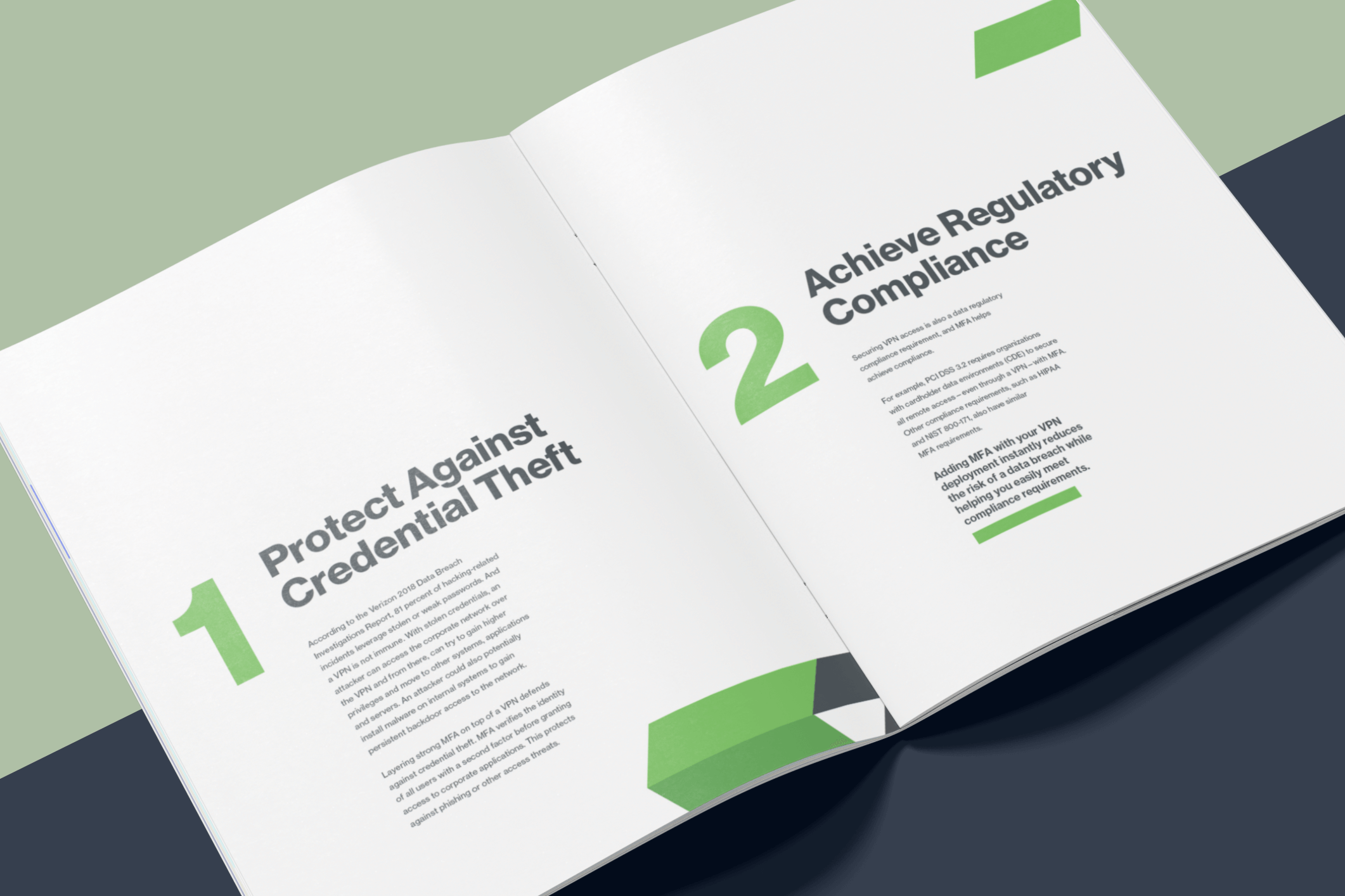5 Reasons to Protect Your VPN With MFA
This guide examines:
- How adding multi-factor authentication (MFA) to your virtual private network (VPN) protects against credential theft
- How an extra layer of defense helps you achieve regulatory compliance
- How visibility into all devices improves your overall security posture
- How the MFA-VPN one-two punch provides consistent, secure access to applications on-premises and in the cloud
VPNs and Multi-factor Authentication
Virtual private networks (VPNs) are the industry standard method for providing remote access to an organization’s internal, on-premises applications. A VPN essentially creates a private, encrypted tunnel for an off-site user to connect to applications in a corporate data center.
VPNs are a valuable tool, but they’re not a silver bullet. For one thing, not even a VPN Is immune to the ever-increasing risk of user credential theft. Even with the use of a virtual private network, organizations that provide users with just a username and password to log into their VPN connections could be exposed to data breaches if those user credentials are stolen.
Protecting your organization’s VPN against user credential theft with multi-factor authentication (MFA) adds an additional layer of defense. Multi-factor authentication provides an additional layer of defense for your corporate network. When defenses are layered in-depth, with Duo’s sophisticated MFA protecting your VPN, you can:
- Verify all users accessing your organization’s applications or cloud files
- Protect against phishing threats
- Reduce the risk of data breaches
- Establish a consistent log-in process for both VPN and cloud services
- Gain insights into user’s access devices, and more
Why you should Protect Your VPN
In this guide, we discuss five reasons you should secure your VPN with MFA to ensure trusted access, including:- To protect against credential theft
- To achieve regulatory compliance
- To enable consistent access security for both on-premises and cloud applications
- To gain visibility into all devices
- To enforce granular access security policies
Download our guide, 5 Reasons to Protect Your VPN With MFA, to gain valuable insights into the important benefits of multi-factor authentication. Additionally, through downloading this e-book, you’ll also learn how Duo’s MFA solution provides secure remote access to internal corporate applications using Cisco’s AnyConnect VPN on Adaptive Security Appliance (ASA) or FirePower Threat Defense (FTD).
Download our guide, 5 Reasons to Protect Your VPN With MFA, now and you’ll also learn how Duo’s MFA solution provides secure remote access to internal corporate applications using Cisco’s AnyConnect VPN on Adaptive Security Appliance (ASA) or FirePower Threat Defense (FTD).


